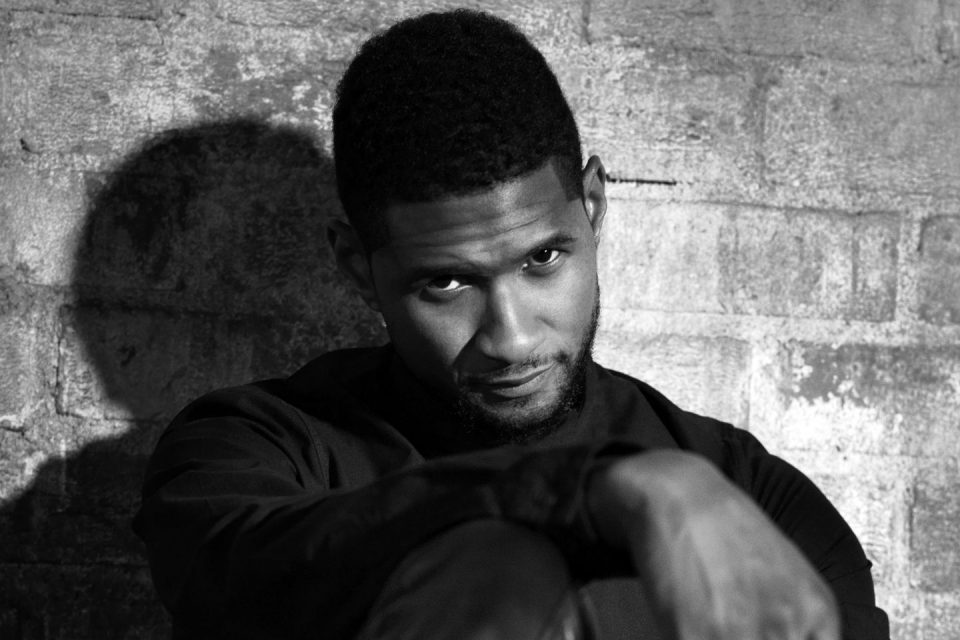On ‘A,’ Usher Moves With the Times ”” and That’s a Bad Thing
Veteran R&B singer revealed an eight-track release at midnight with little warning
In May 2014, Usher released “Good Kisser,” which was originally supposed to be the lead single from his eighth studio album. It looped an old break from a Foster Sylvers record ”” a descending bass riff, a tumble of drums, a festive sputter of cowbell ”” and Usher sang salacious lines with his customary grace. “Good Kisser” was a rare thing, remarkably untrendy, yet so brazen and entertaining that it still managed to go Number One in the trend-obsessed world of radio.
But “Good Kisser” didn’t do as well as Team Usher hoped, stalling at Number 65 on the Hot 100. The album that became Hard II Love was repeatedly pushed back, eventually coming out nearly two and a half years later, and “Good Kisser” was nowhere to be found on the standard edition’s track list.
Ever since that aesthetic risk “failed” ”” only in Usher world, by the way, is a Number One radio record considered a disappointment ”” the singer has adhered to the safest of formulas, singing over the latest rap beats. That accounted for the bulk of 2016’s Hard II Love, and it’s the gist of his new release, A, a collection of songs with the piano-loving Atlanta rap producer Zaytoven.
Catching pop’s waves has always been one of Usher’s greatest strengths, whether that means collaborating with Lil Jon when crunk was going mainstream or charging into EDM as European producers took over the charts. There’s something frustrating, though, about watching this singer make music that he hopes will fit with the Trap Soul generation (Bryson Tiller, 6lack et al.). Usher has the piercing tone and the resources to bury those youngsters, but he chooses to engage with them on their own turf, rather than on terrain that might be more favorable to a singer who released his first single 25 years ago ”” the Trap Soul kids don’t know how to make “Good Kisser.”
Still, Usher is a pro; when he decides on a path, he goes all-in. The nonsense syllables in “ATA” sound pretty, even though they feel cribbed from Young Thug. In “Peace Sign,” Usher slings snapshots from a sweaty night with infectious zeal; at the same time, he skillfully coats the track with Auto-Tuned backing vocals, offering a luscious lesson in counter-melody.
Elsewhere, A is more unimaginative, with by-the-book beats from Zaytoven and a Future-being-Future feature (“Stay at Home”). On “Gift Shop,” which incorporates a verse from the young Atlanta rapper Gunna, Usher raps in a terse, drilling style. He’s fully committed. But he’s committed to blending in, rather than standing out.








